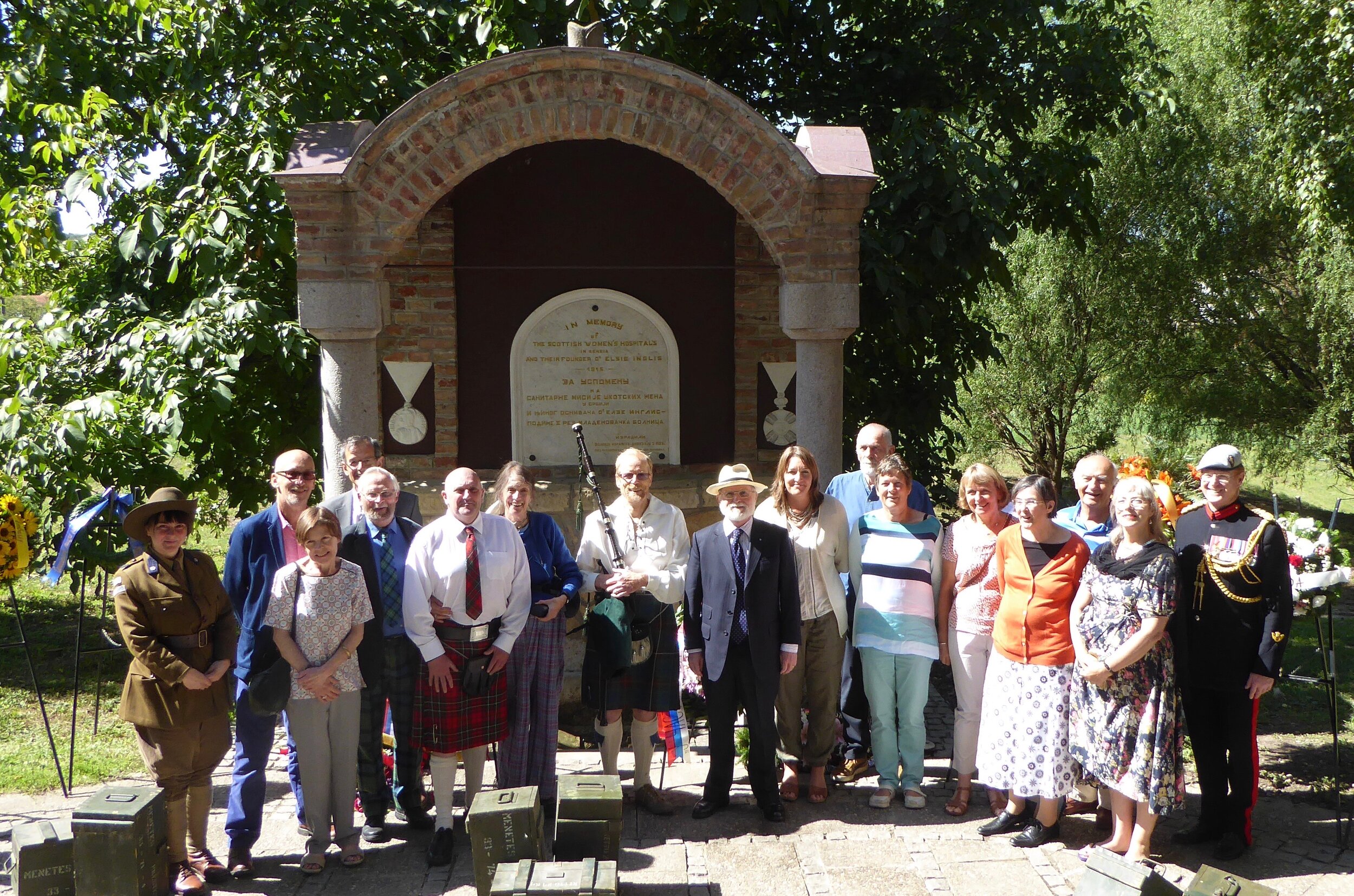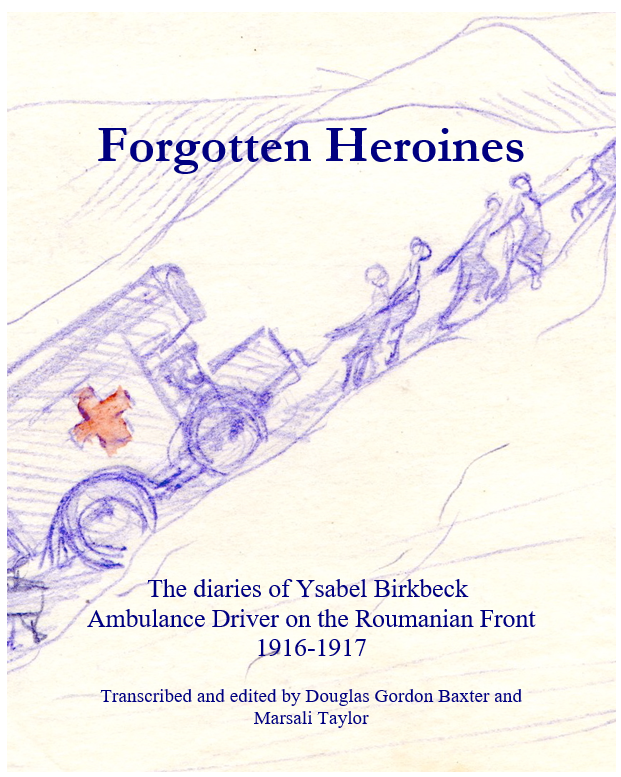
Forgotten Heroines
The diaries of Ysabel Birkbeck, Ambulance Driver on the Romanian Front, 1916-17
Edited by Douglas Gordon Baxter and Marsali Taylor.
When Dr Elsie Inglis offered the War Office two front-line units staffed entirely by women, she was told to ‘go home and sit still’. Her reply was to create the Scottish Women’s Hospital for Foreign Service, funded through the National Union of Women’s Suffrage Societies. Ysabel Birkbeck, author of these diaries, drove an ambulance for Inglis’ last field hospital, attached to the First Serbian Division.
The drivers of Forgotten Heroines show how World War I was the turning-point in Edwardian women’s emancipation. The Buffs, as they called themselves, were mostly ‘surplus’ county daughters who’d resigned themselves to a life of good works and flower arranging. This was the most interesting time they’d ever had, and they made the most of it. They cut their hair short, wore breeches, and were reproved by Dr Inglis for their swearing. There were balls and excursions between aeroplane bombardments, and they learned to flirt in French, German and Russian. While the army retreated, they continued to ferry the wounded from the front line; their Model T Fords were the last vehicles to cross the Danube. They inched through marshes by moonlight, and stuck in wheel-deep mud so often that all chauffeurs became known as ‘shovers’. They were often hungry, ill, exhausted and afraid ... but the only time they were bored was when a male mechanic was sent from England to take over the cars they’d coaxed and fixed themselves for three months. Birkbeck’s diaries show how their intelligence, endurance and courage were tested, and how they thrived on the challenge.
Praise for Forgotten Heroines
“...It transports the reader by less than reliable means from the South of England to the Romanian front via primitive petrol engine ambulance, troop ship and train. ... It reflects a real indomitable spirit. Of course the ladies of the Elsie Inglis’s Scottish Women’s Unit of the Red Cross were not a fighting unit but they did not shrink away from the battle front. They were amongst the last to leave a front line before the advancing enemy in order save as many of the wounded as possible.
Ysabel’s time as an ambulance driver was not all blood, mud and bullets. She had periods of respite where she can be found flirting with Russian officers and taking the odd shopping trip. There is no doubt in my mind that Douglas and more especially Marsali have done an excellent job in ensuring that these heroines do not remain forgotten.
”
Author’s Comment
Aunt Ysabel was one of the formative influences of my childhood. She was our nearest neighbour in the Highlands, and always keen to go off in boats for a picnic. We knew her in Edinburgh too. She was equally terrifying and inspirational, and it was only after her death that I heard of her World War I adventures on the Russian Front then on the Western Front (a great-niece and I are still transcribing those diaries). In World War II, when all her friends fled from London, she opened up her flat again and drove through the Blitz. I feel privileged to have known her.

My visit to Serbia was an amazing experience. It was a commemoration of the centenary of the death of Dr Elsie Inglis, founder of the Scottish Women’s Hospital, which had WWI front line hospitals in France, Serbia and Romania.

The traditional Serbian welcome of bread and salt.

Our group at the Dr Elsie Inglis Memorial Fountain, Mladenovacs. Most of the party were relatives of Dr Inglis.

Hugh Maddox, Dr Inglis's great-nephew, and Tony Waterston, her great-great nephew, lay a wreath in the hospital she established at Lazarevacs.

Planting a tree in the Banje Baste Hospital.

A children's dance group in traditional costume. We saw some wonderful exhibitions of dancing.

Evelina Haverfield, head of Dr Inglis’s ambulance drivers, returned to Serbia after the war and founded an orphanage. The woman standing by the portrait is the grand-daughter of the little boy.

We laid white roses on the graves of three Scottish women who died of typhus soon after their arrival in Serbia.

This memorial, in a park of memorials marking mass graves, was to 290 students and their teachers who were shot by the occupying German army as a reprisal for a Resistance ambush in which 29 German soldiers died.

Wearing the traditional Serbian hat.

Aunt Ysabel as I remember her in the West Highlands.

Birbeck’s watercolour sketch of ‘The road to the Front - shelling ahead.
Discover Forgotten Heroines on Amazon
